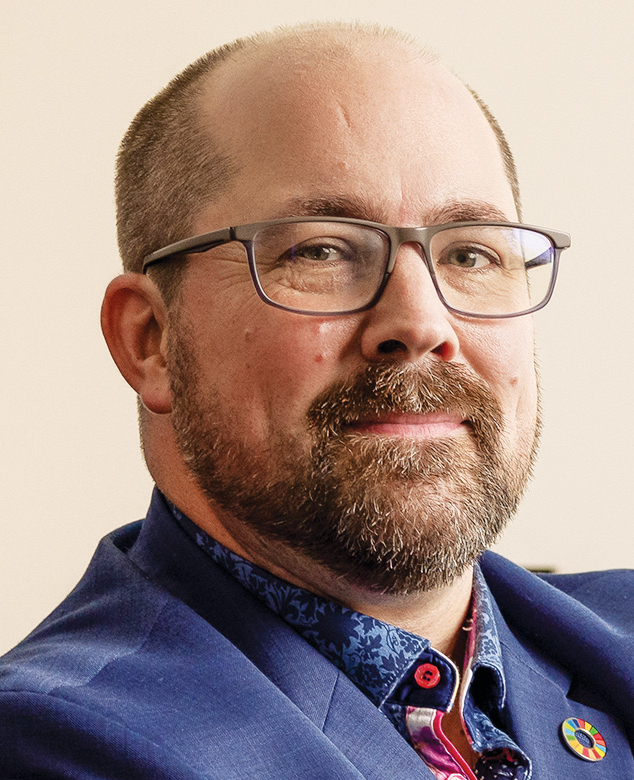We Are All Perfectly Fine
 |
| Dr Joshua Greggain |
Recently, I taught the CARE [Comprehensive Approach to Rural Emergencies] Course, along with several longtime friends and colleagues. This course shares and encourages emergency room skills and teachings alongside physicians, nurses, and paramedics in rural communities, with some iterations taught to groups of residents and international medical graduates. It is an intense weekend and, simultaneously, is very engaging. I haven’t had the opportunity to teach the course often over the last year, so I made a commitment to myself to be present and involved. However, for a multitude of reasons, I wasn’t quite my usual self—something noticed by a friend. Yet when asked how I was doing, my response was something like “I’m fine,” even though I wasn’t.
While I don’t recall the totality of our conversations from that weekend, I undoubtedly referenced losing a colleague in the preceding weeks, a series of evolving situations I was dealing with professionally, and the swath of meetings I’d been a part of. And since we have been friends for a long time, I likely also shared ongoing challenges of balancing work and life that we all face in our profession. Whatever I said, verbally or nonverbally, it was enough for my friend to bring me a book titled We Are All Perfectly Fine, by Dr Jillian Horton. It tells the story of an internist who attends a meditation retreat for burned-out doctors and, after learning the stories of the other physicians in attendance, finds a path forward to wellness. It recounts several physicians’ stories of “their secret guilt and grief, as well as their deep-seated fear of falling short of the expectations that define them.”
In hindsight, I realize that by giving me that book, my friend was checking up and checking in on me, through both word and deed. It was powerful, empathetic, and compassionate. But unlike the satirical title of the book, we are not all perfectly fine. Generally, we want to be fine, if not perfect. We want to be good physicians, good partners, good spouses, good parents, good pet owners, and even good neighbors. Yet we don’t always extend ourselves the same compassion that we show to others in similar contexts.
“My wellness is not your wellness” is a thought I have heard shared in our profession, yet I understand that our collective wellness is critical to our overall sustainability. What I do for my well-being is likely not the same as what you do for yours. Whereas I enjoy a hike outdoors and try to spend at least 30 minutes in nature each day, others may enjoy reading a book curled up with their favorite pet or their child(ren). I was in awe of a group of physicians who gathered to pray collectively as a way to ground themselves before the day began. Others I know meditate to decompress. What each of us does for our own wellness is an individual choice, but the act of checking in on your friends and colleagues is critical.
At times, we are not able to see the blind spots when it comes to our own wellness. But if we don’t identify them, then we can become unsustainable, both as people and as professionals. When we step away from our clinics, our call groups, our night shifts, or pare down some of our patients, we carry inordinate guilt about the feeling that we are falling short. But falling short of what? Self-imposed expectations, I suppose. If we could extend the same compassion to ourselves that we extend to our patients and loved ones, then I believe that our burdens would be lighter and our sustainability more robust. If only we could lean into, and sometimes lean onto, one another to check in and check up.
Sometimes we simply need to give each other a moment of rest, lean into our compassion, and release each other from our collective burden, much like my friend did when she offered me that book, knowing full well I was not perfectly fine.
—Joshua Greggain, MD
Doctors of BC President
hidden
 |
| This work is licensed under a Creative Commons Attribution-NonCommercial-NoDerivatives 4.0 International License. |

